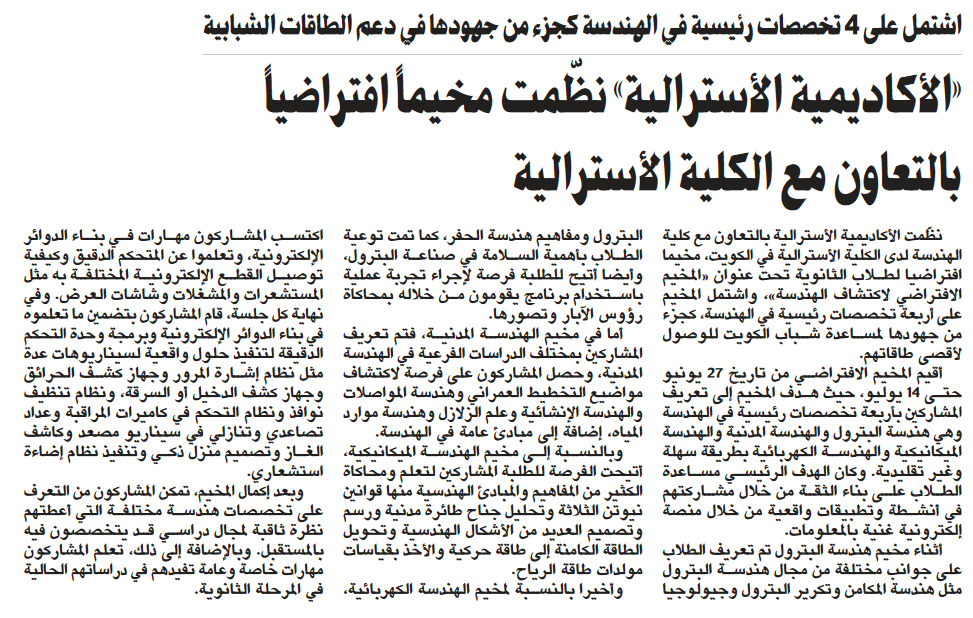Australian Academy collaborates with ACK to organize electronic camp

KUWAIT: The Australian Academy (AA), in collaboration with the School of Engineering at the Australian College of Kuwait (ACK), organized “Discover Engineering Virtually”, an electronic camp for high school students, which covered four major disciplines of engineering as a part of its efforts to help the youth of Kuwait reach their full potential.
The virtual camp took place from June 27 to July 14, 2021, and introduced participants to four major disciplines of Engineering including; Petroleum, Civil, Mechanical and Electrical, in an easy and fun way. The main aim of the camp was to build excitement, motivation and interest in studying engineering, and to increase confidence in the participants’ ability to understand concepts of engineering through engaging in engineering projects and applications through rich online platforms.
During the Petroleum Engineering segment of the camp, students learned about various aspects of the field including Reservoir Engineering, Petroleum Refining, Petroleum Geology and Drilling Engineering concepts. Students were also made aware of the importance of safety in the Petroleum industry.
Students were given a hands-on experience with software simulating and visualizing wellheads as well. With regards to the Civil Engineering segment, participants were introduced to various sub-disciplines within Civil Engineering. The students explored the topics of Urban Planning, Transportation Engineering, Structural Engineering, Seismic Engineering, Water Resource Engineering, as well as general engineering principles. As for the Mechanical Engineering segment, participants were able to examine and simulate a lot of engineering concepts and principles such as Newton’s Laws of Motion, Airfoil Analysis, Design, CAD Drawings, Potential to Kinetic Energy Conversion, and Wind Turbine Measurements.
Lastly, for the Electrical Engineering segment, participants gained virtual hardware skills in building electronic circuits, and were taught about how microcontrollers function and how to connect different components to it such as sensors, actuators, and display screens. At the end of every session, participants embedded what they learned in building electronic circuits and programming its microcontroller to implement real life solutions to different scenarios such as: a traffic light, a fire detector, an intruder alarm, a window wiping system, a CCTV camera system, a counter-up and counter-down (scenario of an elevator), a gas detector and designing a smart home and implementing an automatic lighting system.
By the end of the camp the students were familiarized with different disciplines in Engineering which opened their insights to different fields of study that they may potentially enroll in the future. The students also learned valuable skills that would help them with their ongoing studies in high school.
Media Published Article:
